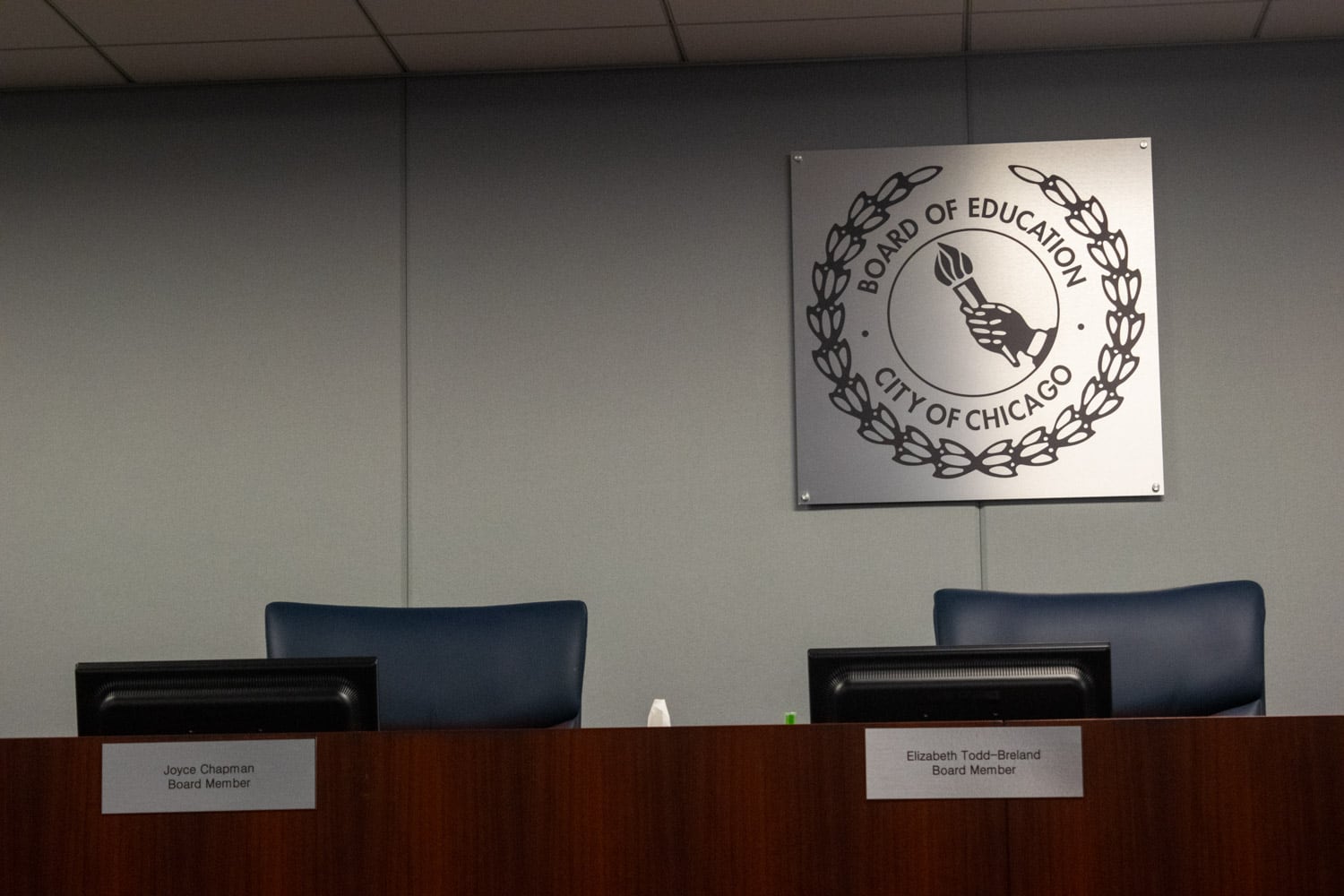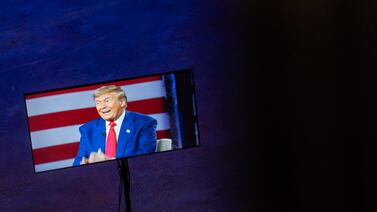Sign up for Chalkbeat Chicago’s free daily newsletter to keep up with the latest education news.
Today is the first day people can collect signatures to get on the ballot for Chicago’s first school board elections.
Chicago voters will head to the polls on Nov. 5 to choose 10 of 21 members to serve on the Board of Education beginning Jan. 15, 2025. After those elections, the mayor will also appoint 11 members.
The city is divided into 10 districts for these first elections and each will be represented by one elected member and one member appointed by the mayor. The mayor will also appoint a school board president.
Candidates must live in Chicago in the district they plan to run for at least one year. They must be a U.S. citizen, registered to vote, and cannot be a child sex offender. In order to get on the ballot, candidates have to collect at least 1,000 and no more than 3,000 valid signatures from voters in the district they’ll represent.
Signatures must be filed with the Chicago Board of Elections between June 17 and June 24.
In addition to signatures, candidates will be fundraising to support their campaigns. Once a candidate fundraises more than $5,000, state law requires them to file disclosure paperwork with the Illinois State Board of Elections. So far, four candidates have done that under committees that include their names, while other political action committees have been formed.
CPS parent and former CPS teacher and principal Adam Parrott-Sheffer filed campaign disclosure paperwork earlier this month and launched a website to announce he is running to represent District 10, which includes his Hyde Park neighborhood and stretches most of the city’s south lakefront from I-55 to the Indiana border.
Parrott-Sheffer told Chalkbeat he jumped in the race after not seeing others throw their hat in the ring. He said because school board members will not be compensated beyond expenses related to doing the job, parents and people not connected to special interests will have a harder time.
“I don’t think that the seats should be like they are in [Los Angeles]LA, where it’s a fight between business and charter and unions,” Parrott-Sheffer said. “I think that there’s a lot that all those perspectives can learn from each other, and are really valuable when we’re thinking about all of them together.”
Parrott-Sheffer, now an education consultant and adjunct professor, said being a principal gave him the skills to be a strong school board member who can balance the needs of parents, the district, organizers, teachers, community organizations, and businesses while keeping kids “front and center.”
“Politics is not my thing,” Parrott-Sheffer said. “I like schools, I like making schools better. I like making them work for kids. And so that kind of was the ultimate decision.”
CPS parent Kimberly Brown is planning to run in District 4, which encompasses the north lakefront neighborhoods of Lincoln Park, Lakeview, and Uptown. Brown is the chief marketing officer at a global manufacturing company and has two small children – one who attends a neighborhood school in Lakeview.
“The reality is the most change that affects you happens in your backyard with your local politics and most specifically your local school,” she told Chalkbeat. “And if you don’t have kids, local schools affect your public safety. They affect your public infrastructure. They affect the businesses and the economy that makes your streets wonderful. Local schools build local economies.”
If elected, Brown said she’s hoping to promote more transparency and communication from the district. That desire comes after spending the past eight months talking to CPS parents to understand what they want from the district, who don’t know “if the Board [of Education] is really trying or not,” Brown said.
Michelle Pierre also filed campaign disclosure paperwork Friday and plans to run in District 1, which covers neighborhoods, including Portage Park and Jefferson Park, on the northwest edge of Chicago near O’Hare airport. Pierre started her career as a teacher in New York, became a principal in D.C., and moved into district leadership roles in D.C. and Cleveland. She’s the former chief of schools for the LEARN Charter School Network in Chicago and now works for New Leaders, a national nonprofit focused on training principals and school administrators.
“I just plan to be out knocking on doors, going to events in our community — It’s starting to warm up in Chicago, which is great — and going to places where parents are,” Pierre said.
Pierre has served on the Local School Council at her high-school aged daughter’s school and said she believes in parents having a strong voice and also supports school choice.
Carlos Rivas also filed campaign disclosure paperwork Monday and is planning to run in District 3, representing the north west side neighborhoods of Logan Square, Humboldt Park, Hermosa, and part of Belmont Cragin. He’s a former college counselor and alumni support manager at the Noble Network of Charter Schools and now serves a public affairs chief for Chicago’s Civilian Office of Police Accountability.
Education-focused political committees could play a role
Both the Chicago Teachers Union and the Illinois Network of Charter Schools have active political committees that have supported local candidates for Chicago City Council and the Illinois legislature in the past decade. As of Dec. 31, 2023, the charter group’s political funds had a collective $1.8 million and the teachers union’s two PACs had just over $200,000 in their accounts.
Andrew Broy, president of the Illinois Network of Charter Schools, said his organization plans to meet with school board candidates and determine who to support over the summer after candidates have filed signatures to get on the ballot. He raised concerns about state lawmakers increasing the signature requirement to 1,000 from 250 under previous legislation. For comparison, Chicago aldermen must get 473 valid signatures to get on the ballot.
“Given that petition challenges are a feature of Chicago politics, you need to have more than 1,000 to actually be competitive,” Broy said. “I think that was probably a ballot access barrier of sorts put in place at the 11th hour in Springfield.”
Two familiar names in Chicago’s education landscape — former mayoral candidate and former CPS CEO Paul Vallas and former charter school leader Juan Rangel — recently filed paperwork to form a political action committee called Urban Center PAC.
Rangel said the PAC could possibly support Chicago school board candidates, but it’s not the group’s sole focus. He recently launched a nonprofit of the same name, The Urban Center, that more broadly focused on community organizing around more centrist political views. “Access to High-Quality Schools” is listed on the organization’s website as something the group stands for, which includes “parents to choose a school — public or private — that best fits the needs of their children.” Rangel recently worked for Empower Illinois, one of the state’s top scholarship-granting organizations under the tax-credit scholarship program Invest in Kids, which is sunsetting.
“We want to be a resource for candidates who want to run for public office and that would include for school board,” Vallas said. He added that he is not planning to run for Chicago school board and hopes future board members will focus on “empowering the community to have input into the transformation of their local schools.”
Reema Amin contributed reporting.
Becky Vevea is the bureau chief for Chalkbeat Chicago. Contact Becky at bvevea@chalkbeat.org.





